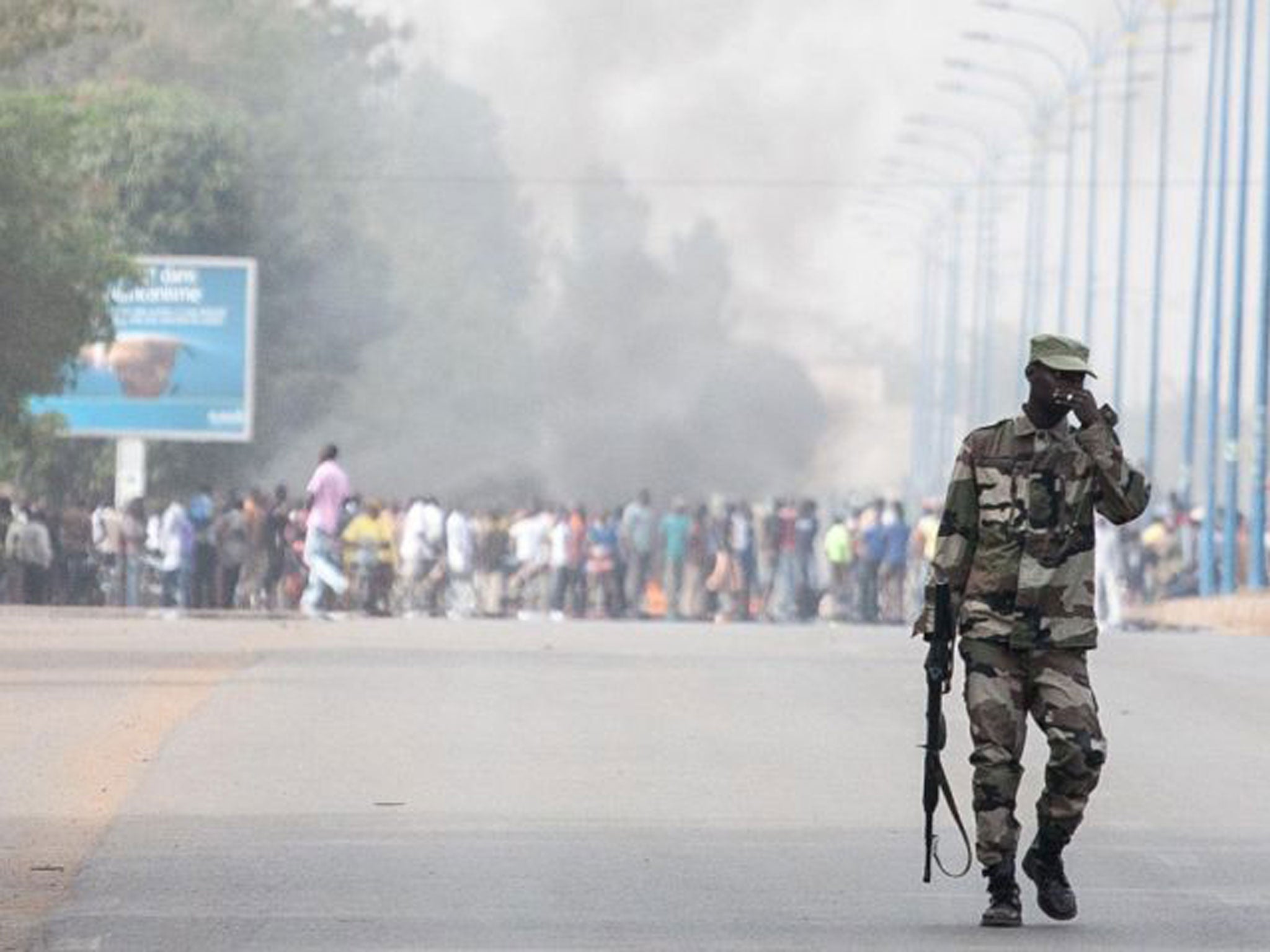Islamists used hostage payoffs from Nicolas Sarkozy's government to fund Mali raids
Ex-US ambassador claims former president paid out €89m to Saharan criminal gangs

Your support helps us to tell the story
From reproductive rights to climate change to Big Tech, The Independent is on the ground when the story is developing. Whether it's investigating the financials of Elon Musk's pro-Trump PAC or producing our latest documentary, 'The A Word', which shines a light on the American women fighting for reproductive rights, we know how important it is to parse out the facts from the messaging.
At such a critical moment in US history, we need reporters on the ground. Your donation allows us to keep sending journalists to speak to both sides of the story.
The Independent is trusted by Americans across the entire political spectrum. And unlike many other quality news outlets, we choose not to lock Americans out of our reporting and analysis with paywalls. We believe quality journalism should be available to everyone, paid for by those who can afford it.
Your support makes all the difference.A former US ambassador to Mali, has claimed Nicolas Sarkozy’s government paid $17m (£11m) to free French hostages seized from a uranium mine in its former colony, Niger, in 2010.
Vicki Huddleston, who has now retired, said under Mr Sarkozy, France paid out as much as $89m (£56m) in ransoms to Saharan criminal gangs and Islamist groups – money which experts said fuelled the rise of the Jihadi organisations which later overran northern Mali.
“About two years ago... the AQIM [al-Qa’ida in the Islamic Maghreb] took French hostages at the yellowcake uranium mine in northern Niger, and France paid ransoms for the release of these hostages,” she told France’s iTele station in an interview aired yesterday.
The payments were made indirectly, she said, through the Malian government in a procedure that may have helped to fuel the epic corruption that has dogged the country.
When questioned about the ransom claims after the EU summit in Brussels last night, President François Hollande said he could not comment on the actions of “previous administrations” but stressed France’s present policy was to refuse negotiations with terrorists
Yesterday also saw the first suicide bomb attack in Mali since France’s military intervention last month, prompting fears that a second phase of the war has begun in the chaotic West African nation. Yesterday’s blast near the northern city of Gao came as two factions in the Malian army opened fire on each other in the capital, Bamako, underlining how far the country is from a stable solution to its year of crises.
A suicide bomber on a motorcycle detonated himself at an army checkpoint in Gao but succeeded only in killing himself. In Bamako, five civilians, including three children were wounded when soldiers linked to last year’s military coup stormed the barracks of the presidential guard. The skirmish has added to international concerns that the Malian army is in no shape to confront the Islamist threat without outside military support.
Meanwhile hopes some of the foreign hostages being held by al Qa’ida-linked militants may have survived the opening phase of the conflict were raised when the deputy mayor of Timbuktu said some of them may have been held in the desert city until recently.
A South African man with a British passport, seven French citizens, a Swede and a Dutchman have all been kidnapped in this part of the Sahara in recent years. It is not known which of the hostages may have been seen.
Witnesses in the recently liberated city said an unknown number of hostages were held in the Timbuktu house of Abou Zeid, the feared commander of AQIM and the leading figure to impose a harsh form of Sharia law in northern Mali. The Islamists were driven out of the city last month by French forces who have since secured most of the major towns in the north of the country.
“In the last few days, the hostages were in that house with Abou Zeid,” said Diadie Hamadoun Maiga told Reuters. The deputy mayor sat with Abou Zeid on Timbuktu’s crisis committee, a body set up to liaise between previous civilian authorities and the new Islamist rulers during the 10-month occupation.
Two other witnesses said that several Western-looking hostages were kept in the militant leader’s walled compound in Timbuktu. Previous hostages, including Canadian diplomat Robert Fowler, confirmed the AQIM commander takes a personal role in the foreign hostages.
Join our commenting forum
Join thought-provoking conversations, follow other Independent readers and see their replies
Comments